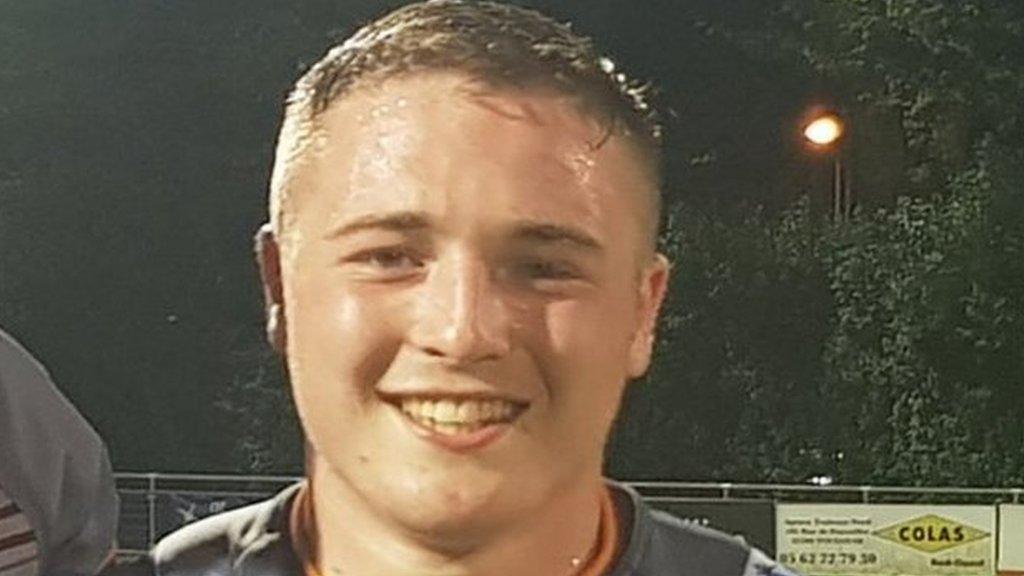Calls to strengthen drugs policy in rugby league

Archie Bruce had made his debut for second-tier rugby league side Batley Bulldogs shortly before his death
- Published
A coroner has asked rugby league's governing body to consider changing its drugs policy following a player's death.
Archie Bruce, 20, died in a hotel room in Toulouse with drugs and alcohol in his system in August 2019. He had recently made his debut for second-tier rugby league side Batley Bulldogs.
Senior coroner Martin Fleming has written to the Rugby Football League (RFL) asking for action to prevent further deaths.
The RFL said the annual process to review its code of conduct for 2025 was already under way.
The body's drug policy states players should be prevented "from causing long or short-term damage to their health/mental well-being through misuse of illegal or non-prescribed substances".
It also says the RFL should "ensure that players can be offered appropriate treatment before misuse and/or addiction jeopardises their career".
But in Mr Fleming's prevention of future deaths report, published earlier this month, external, he raised concerns that clubs outside the Super League could apply to be exempt from the RFL's welfare policy and standards "on the basis of resources".
He suggested an amendment to the policy should be considered "so that there is not a relaxation of the rules in clubs outside the Super League", which would be particularly beneficial "given [that is] where young players start off their careers".
'Unintended consequences'
An inquest in January heard Mr Bruce's post-mortem examination found alcohol, cocaine, buprenorphine and a fatal quantity of the painkiller tramadol in his blood, which contributed to his death on 18 August 2019.
Mr Fleming wrote in his report it was likely Mr Bruce had "misjudged their combined toxicity with fatal, unintended consequences".
A healthcare professional anonymously told the BBC in February that "tramadol [use] was very common" in rugby, describing it as a "dirty drug".
Sheffield Eagles player Kris Welham said players would often take it after a game or injury, describing it as a "go-to" for pain relief.
An RFL spokesperson said: "We review the code of conduct for all aspects of the sport, including overseas travel, on an annual basis, and that process is already well under way for 2025, as we have stressed to the coroner, and to Archie’s family.
"We wrote to Archie’s family after the completion of the inquest reiterating our sympathy for their tragic loss, and outlining some of the changes that have been made to policies and procedures since the incident."
Related topics
- Published17 January 2024

- Published15 February 2024
